Juicer Types
There are 4 types of juice extractors:
- Centrifuge - ( high speed rotor which separates the pulp from the juice
- Mastication - chewing - grinding
- Cold Juicing - utilizing an auger at low speeds
- Press - extraction through compression
Lets take a closer look
Centrifuge:
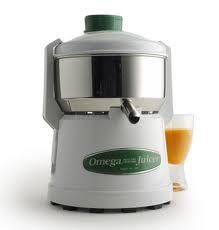
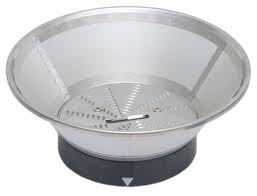
Advantage: This type extracts fast at high RPM - approx 10,000 RPM
Disadvantage: Fast rotating blades - heats up the juice a few degrees and also, oxidizes the juice. The pulp is generally wet (waste factor is comparatively high)
Cold Juicing: Auger |
Motor or manual hand crank - generally the same performance (Low speed of an auger type.) | |
|---|---|---|
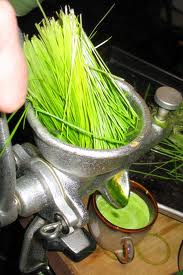 |
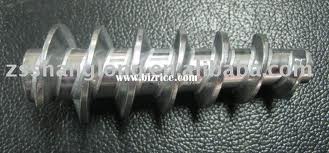 |
|
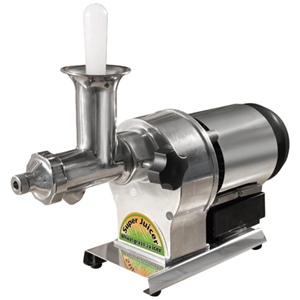 |
||
Advantage: Quite operation - This model with motor, extracts at a low 91 RPM. Pulp is dryer and therefore more juice. Specialized for wheat grass because of the grass blade construct. Wrapping the grass blades around the single auger extracts the juice by a twisting action.
Disadvantage: Found none at this time
Mastication:
 |
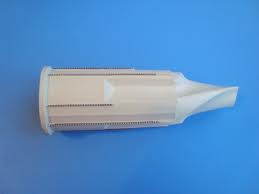 |
| Champion with juicer attachment | Juicer blade |
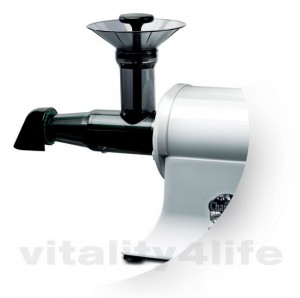 |
|
| Champion's attachment demo | |
| Champion wheat grass adapter This product does not perform well, see reviews. |
Advantage with use of Green adapter:
- Quite operation
- Great manufacturer's warranty
- Made in the U.S.A
- No BPA plastics, all materials which touch food are FDA food-grade nylon
- Extracts with relatively dry pulp for apples and carrots
- Great for leafy greens with adapter
Update: The new leafy green attachment (single auger) now works great for leafy greens and wheat grass. Price for attachment: $76.00 to $89.00.
Disadvantage: Without leafy green attachment, the leafy greens pulp is relatively wet. This type extracts at higher than auger type (1725 RPM)
Summary: Not one juicer type will be optimal for the extensive range of fruits and vegetables. The centrifuge type is fast but most wasteful. A mastication type or a press is the optimal providing the mastication type is of slow RPM.
Masticating (Champion) versus Cold Juicing (Omega VRT)
Twin Auger (Angel) versus Versical Single Auger
Twin Auger Versus Twin Auger
Angle cost $1,000USD and the GSE cost $530USD